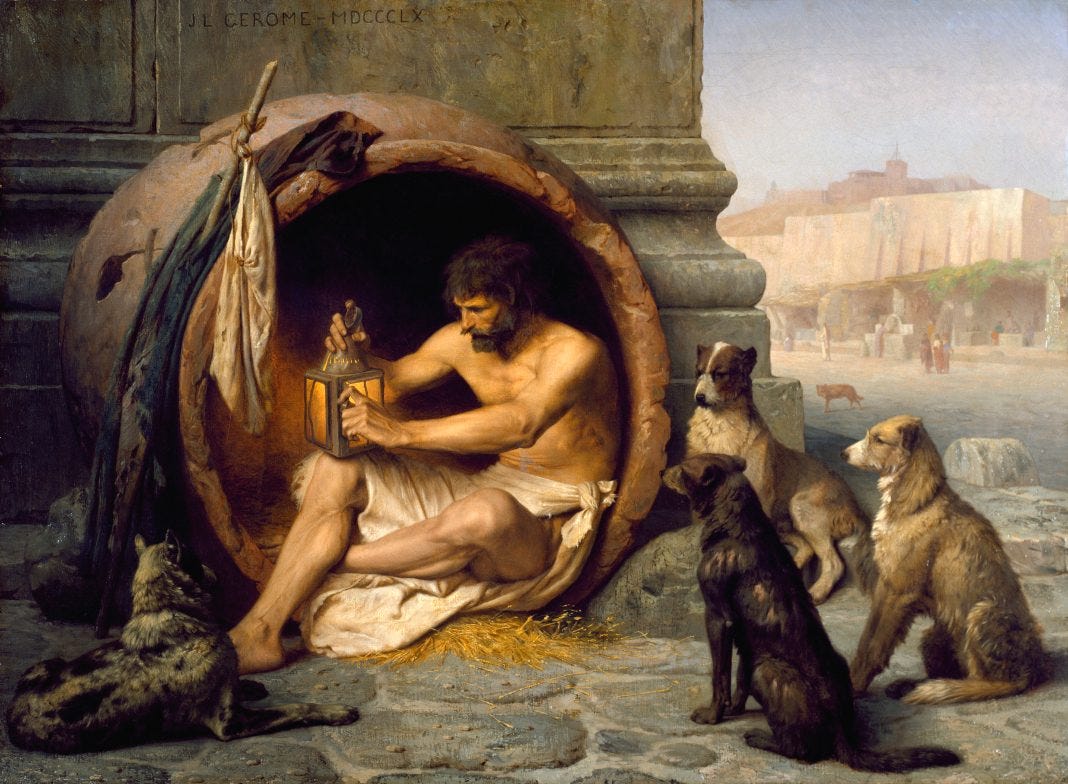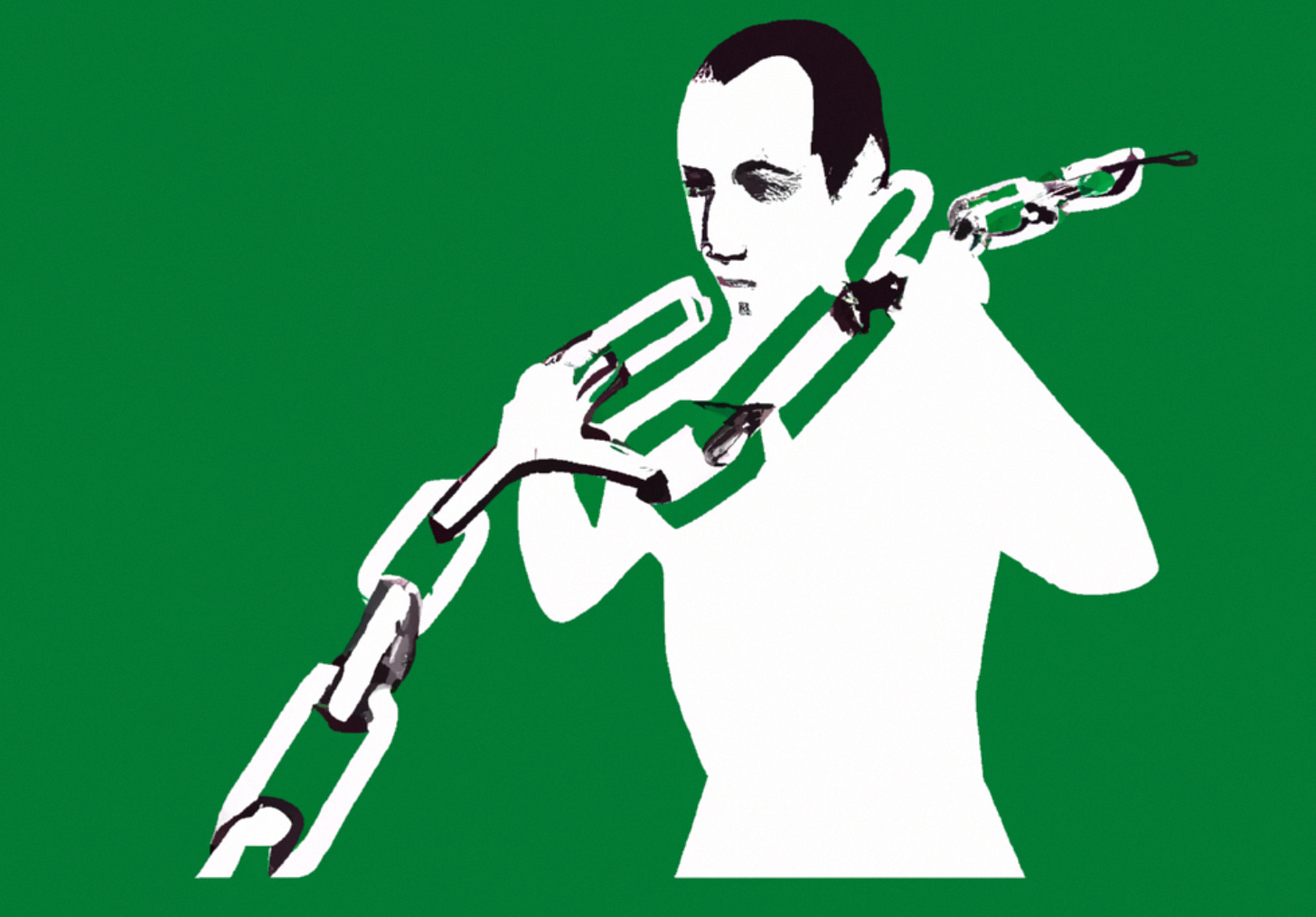Escapism and Escapology in Jack Reacher
Does reading thrillers help build character or make you avoidant?
Just as there is comfort food, which makes you feel better when you're down, so there is comfort literature: books you can read any time to forget what’s on your mind.
For me there are no more comforting books than Lee Child’s Jack Reacher series.1 The combination of stark, hardboiled prose with an unflappable, righteous hero is engaging no matter what else is going on. I am transported, absorbed, relieved from care.
There’s another term for this type of thing: escapism.
Escapism is generally considered a bad thing because the more you avoid problems the bigger they become. Escapism feels great until reality topples over and flattens you.
The beauty of the Jack Reacher books is that he is a character who never indulges in escapism. He is always fully present to the situation, with cast-iron integrity and the quickest of wits.
A few years ago, I was a regular contributor to New Escapologist, a magazine that was against escapism and for quitting the default work-shop-die consumerist existence. One of the articles I always wanted to write was on the character of Jack Reacher,2 who I think of as the perfect escapological hero. This month, whilst being in Spain and reading a pile of Reacher books, I decided to follow through and write it.
Jack Reacher as Escapologist
No possessions
The most striking aspect of the character Jack Reacher is that he owns virtually nothing — just a toothbrush,3 a bank card, the clothes on his back, and, since 9/11, a passport. Reddit forums debate whether he is a believable minimalist, given that he doesn’t even have a bag.
“To fill a small bag means selecting, and choosing, and evaluating. There's no logical end to that process. Pretty soon I would have a big bag, and then two or three. A month later I'd be like the rest of you.”
If he needs new clothes, Reacher simply walks into a shop and buys them, dumping the old ones in the bin on the way out. It sounds ludicrous that he can’t go to a launderette and sit in his pants like a Levi’s advert, but I guess you save a bit of time by not washing them.
“Carry a spare shirt, pretty soon I'm carrying spare pants. Then I'd need a suitcase. Next thing I know, I've got a house and a car and a savings plan and I'm filling out all kinds of forms.”
How much do you need to be satisfied? Do you need a car, a house, a wardrobe full of clothes, a lawn, a big TV? What if you didn't have any of these things? Having no possessions isn’t a solution to a problem, but it does mean that you remove a lot of additional problems.
“I’m a rich man. To have everything you need is the definition of affluence.”
In all this, he resembles the Greek philosopher Diogenes, who lived in a barrel and threw away his cup when he saw a child drinking out of his hands.
Total freedom, living in the present
To most people, freedom means two weeks in the sun, taking a break from the drudgery of everyday life. What would you do with yourself if there was no home to go back to? Reacher spent his life on army bases (his Dad was also in the army) and, since quitting work, has decided to explore the country he served:
There were cities, and there was countryside. There were mountains, and there were valleys. There were rivers. There were museums, and music, and motels, and clubs, and diners, and bars, and buses. There were battlefields and birthplaces, and legends, and roads. There was company if I wanted it, and there was solitude if I didn't.
It sounds like hell to me — rootless, alienated, tiresome — but you can see how the fantasy is compelling to readers.
Maslow’s hierarchy of needs suggests that self-actualisation is like levels in a video game, each colour represents a boss defeated. By not owning or renting property, you’d think that all your time would be occupied with things at the bottom of the triangle.4
Instead, Jack Reacher has cut out the ‘boring’ middle parts of the pyramid. He is more like a Zen monk than a tramp. And, unlike most tramps, isn’t haunted by voices in his head, memories of shame and disappointment. He enjoys life:
It was still a beautiful morning, So I walked. Any day could be the last of life or liberty, so small pleasures were always worth pursuing.
But he is always realistic, the opposite of the escapist living in a fantasy world. In The Affair (2011), shortly after he shoots an amateur soldier from a militia, he reflects on why the soldier’s companions make a run for it:
Blood and brains are realities, and realities are unwelcome visitors in the world of make-believe.
Reacher’s life is all there in the self-actualisation part of Maslow’s hierarchy: acceptance of facts, problem solving, spontaneity, creativity, lack of prejudice … and all done with moral integrity.
Integrity
The most inspiring aspect of Jack Reacher is his uncompromising integrity. He is a character who follows through on his intentions. Here are some of his credos:
Hope for the best, plan for the worst. Never forgive, never forget. Do it once and do it right. You reap what you sow. Plans go to hell as soon as the first shot is fired. Protect and serve. Never off duty.
Andrew Key reviewed Tom Cruise’s adaptation of One Shot recently, writing that “deep down, at its core, Jack Reacher is a totally right-wing piece of garbage that isn’t worth the time.”
In the books, Reacher is not a reactionary, but he is an individualist. He doesn’t spend much time thinking about the systemic sources of corrupt behaviour because he thinks everyone is responsible for their own actions.
For a reader who is avoiding facing up to the compromises that led them to this point, devouring thrillers is a way of temporarily feeling good. What makes them worth your time is all the insights and observations, like this one about the relationship between breath and fate:
He realized he was holding his breath. He exhaled, long and slow. Because: Dum spero speri. Where there’s breath, there’s hope. Not an aphorism Zeno of Cittium would have understood or approved of. Zeno spoke Greek, not Latin, and preferred passive resignation to reckless optimism. But the saying worked well enough for Reacher, when all else failed. He took a last sip of Bud and set the bottle back on his napkin.
It is the kind of thing that makes you pause before the protagonist singlehandedly beats up six bad guys.
Jack Reacher as escapism?
Where do you draw the line between escapism and reality-engagement?
Checking your phone, going on holiday, and reading thrillers are usually considered escapist; whereas, quality time with friends and family, doing important work, and reading the classics is reality-engagement. But not always. Any activity can be escapism relative to what it is that you're avoiding.
Does reading Reacher help build character or is it just a way to defer building character? I suspect it is the latter, but as T.S. Eliot wrote "human kind cannot bear very much reality" and a bit of escapism is fun especially when the character is an escapologist.
At least, those written by Lee Child. I checked out when his brother, Andrew Child, took over the series.
Who is Jack Reacher?
The basic premise is that Reacher is a former military policeman in the US Army who has quit his job to explore the country he has served. A typical story will see him arriving into a small town on a bus to look up an old blues guitarist, unaware that there is something fishy going on in town. With a righteous sense of justice, Reacher will defend the weak and attack the corrupt, then move on.
There’s a nice passage in The Affair where he discovers a travel toothbrush:
"The business end was nested in a clear plastic case, and it pulled out and reversed and clipped back in, to make it full-length and ready to use. It was obviously designed for a pocket. It would be easy to carry and the bristle part would stay clean. A very neat idea."
Some related quotes:
When in doubt, drink coffee.
Eat when you can because you never know when the next chance will be.
Sleep when you can so you won’t need to when you can’t.
Part of being a drifter means you look forward, not backward. You concentrate on what’s ahead.









There's a very American consumer subculture around the 'daily carry', essential things of high quality you keep with you. These things tend to be wallets, pocket knives and fidget toys, which says something about how confused the whole idea is.
One of your best yet, from my perspective. Makes minimalism sound very appealing. I think I must have seen a Jack Reacher film - one where he turns up looking for something to do with Blind Blake?